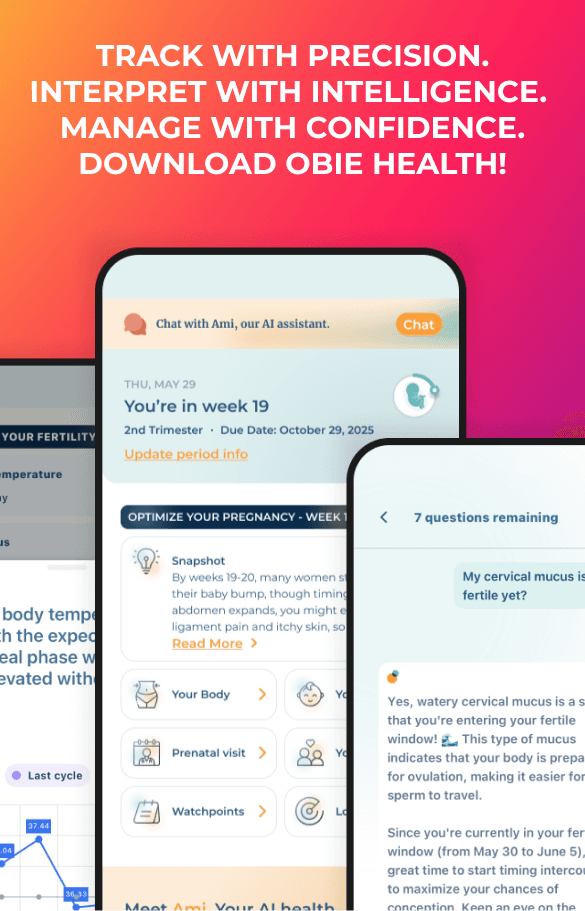Yeast Infections and Pregnancy
Infections
Obie Editorial Team

There is a natural acidity in the vagina that keeps yeast infections at bay; however, during pregnancy, bouts of intense stress can cause acid levels to drop leaving the vagina unprotected. When yeast is allowed to grow in a less acidic environment, a yeast infection can develop. Yeast infections are more common during pregnancy due to hormonal changes, specifically increased estrogen. Rising estrogen levels spark glycogen production and yeast grows out of control and takes over healthy microorganisms.
What causes a yeast infection?
Yeast infections are a result of an imbalance between the acid and yeast in the vagina. Glycogen facilitates yeast growth, but doctors also believe there is a direct connection between estrogen and speed of growth, which could be one reason yeast infections are common during pregnancy.
Antibiotics are also associated with yeast infections. Antibiotics cannot discern between good and bad bacteria, so all bacteria are killed. Bad bacteria growth takes over before good bacteria can catch up leading to a yeast infection.
What are the symptoms of a yeast infection?
Symptoms of a yeast infection primarily affect the vagina and vaginal opening. Common symptoms may include irritation, redness, itchiness and foul-smelling discharge. Painful sex and burning while urinating may also develop.
How can you treat a yeast infection?
Antifungal medications are required to treat yeast infections, and even though these medications are available over the counter, you should seek proper medical diagnosis before attempting to self-treat your yeast infection. This is especially important during pregnancy as not all medications may be safe for pregnant women. Some yeast infections my require a prescription medication, as over the counter varieties are not strong enough to fight the infection quickly.
Having a yeast infection during pregnancy
Yeast infections during pregnancy are common and do not pose any medical risk to the unborn baby. There are safe medications available for use during pregnancy. However, if you are pregnant and have an active yeast infection, it is possible to pass the infection on to the baby during labor. Typically, the yeast infection will affect your infant’s mouth in the form of an oral yeast infection called thrush. Thrush is easily treatable in infants.
Postpartum yeast infections
It's common to acquire a yeast infection within a few weeks after giving birth. Postpartum yeast infections may be associated with antibiotics, vaginal birth, or hormonal changes. It is important to tell your doctor about your symptoms before attempting to use over the counter antifungal medications. Your doctor may prescribe an oral antifungal to speed up the healing process.
Yeast Infections and breastfeeding
Yeast infections are common during breastfeeding, especially if you use breast pads. If your baby develops thrush from labor it can then be passed onto you through breastfeeding. Common symptoms of a yeast infection of the breast include painful nipples, peeling skin and shooting pains while feeding. Your doctor can advise on the best ways to avoid infection, including sterilizing breast pumps and washing/drying nipples between feedings. An antifungal cream may be prescribed along with an oral antifungal medication to prevent or treat thrush in your baby.
Read More









